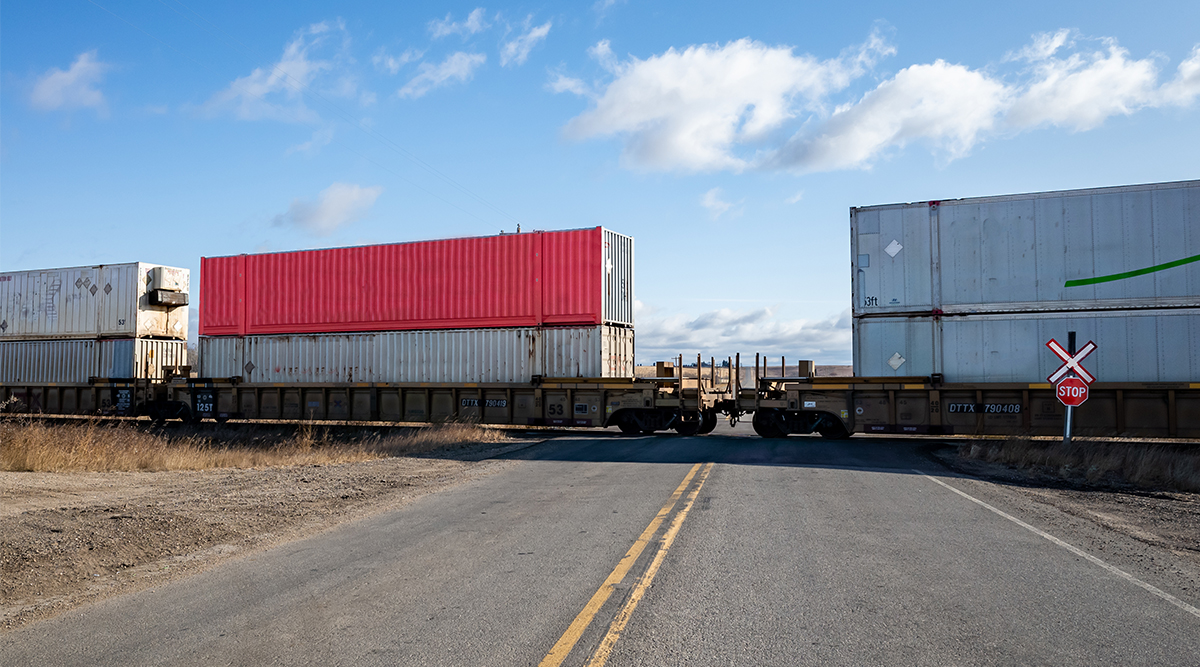Videos
Does Outsourcing to a 3PL Mean Losing Control?Does outsourcing your logistics mean losing control over your supply chain? It’s a common question, but is more of a perception than reality. A company outsourcing still needs to keep in-house expertise and responsibility over their supply chain. Strong communication combined with performance metrics enable a successful outsourcing partnership.
In this 5-minute video, Adrian Gonzalez interviews Mike Glodziak, president of LEGACY Supply Chain Services, who dispels the myth that outsourcing equals a loss of control over supply chain.
Video Transcript
Adrian: And when I asked these companies, you know, what’s the main reason you don’t outsource, the main reason, they say, is that they want to stay in control. So control is the operative word, there. So for them outsourcing implies less control. Is that perception or reality? Can you outsource and still be in control?
Mike: Great question, great question. And I’ll tell you, Adrian, probably the most common question I get in my role. My answer to that is that it’s perception. There are so many successful outsourcing solutions and relationships out there. I’m going to tell you its perception. You know, I think the biggest challenge, or what we try to warn new clients about is the notion of just because you’ve outsourced your warehouse facility, or perhaps your transportation lane, or your complete supply chain, it doesn’t mean you’ve outsourced responsibility for your supply chain. You still have responsibility for your supply chain, you still have to understand your supply chain, and you absolutely you still need to have control of your supply chain.
And, you know, it’s a difficult question to answer, but when you’re across the table from a potential client, and talking about outsourcing, they’re expecting they’re going to cut all their costs. And that’s not the case; you still need to keep that in-house expertise. And again, the successful relationships, the ones that we do very, very well in, they still have a lot of in-house supply chain expertise. It’s as simple as that.
So, you know, someone a lot smarter than me in world history had the phrase “to measure is to know,” and that is the case here, to measure is to know. And it is about performance measurements, and at the end of the day, it is about metrics. When we talk to a client, we talk about metrics at three different levels, we talk about operational metrics, we talk about tactical metrics, and we talk about strategic metrics.
Some quick examples of those three, operational metrics for us is really aimed at our operation as a provider. So we’re talking a dedicated warehouse facility perhaps, and we’re operating that facility.
Operational metrics for us might include orders shipped or order accuracy, but it is about us, the provider, and it is a measure for us day-to-day on how well we’re doing as a provider.
When we think about tactical metrics, what we aim our tactical metrics at is the client’s business critical measures, so it’s really about the client, and for a client example of tactical measure, maybe an order cycle time or a ship cycle time. So it’s a time that that client gave us an order and we got that order to a shipping dock or perhaps it’s a time that from the point that we shipped that order out to our customer’s customer receiving that order. So that’s the tactical measure. So really it’s about our client’s critical business measures.
So our last one’s strategic measures, which we love to put in place, and sometimes a little more difficult with our clients. Strategic measures are really aimed at measuring our client’s end business goals at a higher level. So, a couple of examples, is our client profitable at the end of the quarter or at the month or the end of the year. So are we as supply chain operators delivering what we said we would deliver at the right price and positively affecting their profitability. Is their sales revenue increasing? So again you need your client’s support when you get to that strategic level and you need to be working together, and they need to share with you.
I think that if you put the foundation in place and you put the operational, tactical, and strategic measures well cemented into the foundation, then you don’t lose control. And it does work very well. So I think its more perception than reality, in the successful relationships, it truly does work.
-
Tariff Update: Where things are heading next
The buzz around tariffs has settled down over the last few weeks. Progress is being made in many areas, so the purpose of today’s post is...
+ Read more -
Successful 3PL-Customer Relationship – 6 Cornerstones
Hiring a third-party logistics (3PL) provider is a strategic approach for businesses to increase their capacity without expanding their...
+ Read more -
Canadian Rail Strike? – What We Know So Far
On May 1st, CN (Canadian National Railway) and CPKC (Canadian Pacific Kansas City) rail workers voted overwhelmingly to authorize a strike...
+ Read more



